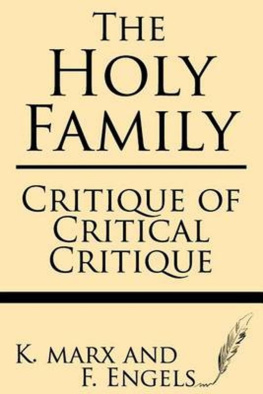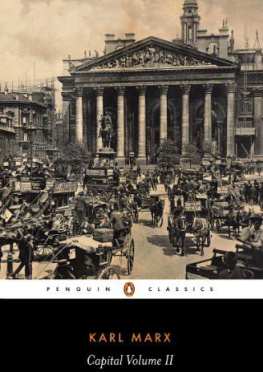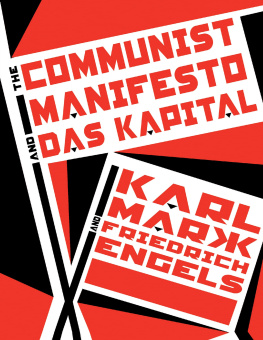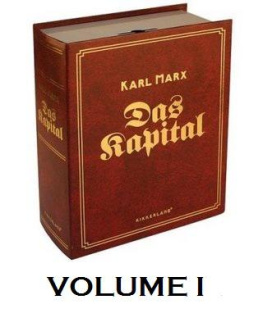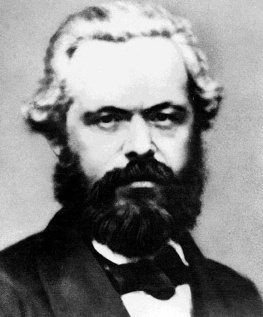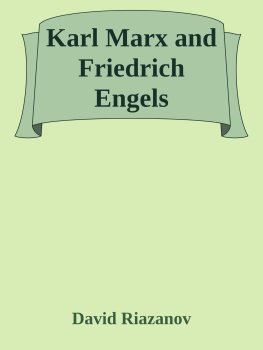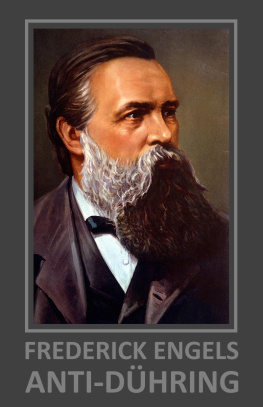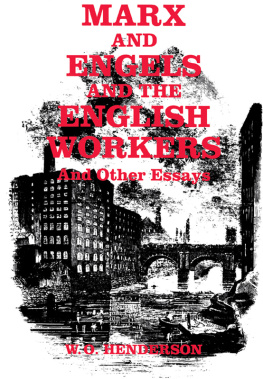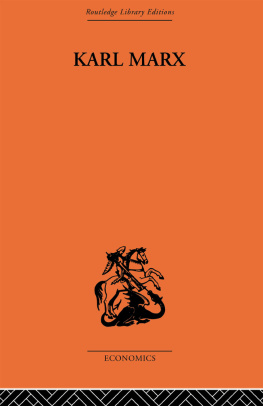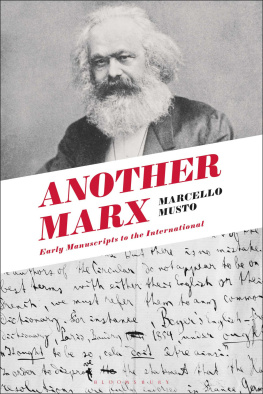The Holy Family
Critique of Critical Critique
Karl Marx
Friedrich Engels
Foreword
Real humanism has no more dangerous enemy in Germany than spiritualism or speculative idealism, which substitutes "self-consciousness" or the ''spirit" for the real individual man and with the evangelist teaches: "It is the spirit that quickeneth; the flesh profiteth nothing." Needless to say, this incorporeal spirit is spiritual only in its imagination. What we are combating in Bauer's criticism is precisely speculation reproducing itself as a caricature. We see in it the most complete expression of the Christian-Germanic principle, which makes its last effort by transforming "criticism" itself into a transcendent power.
Our exposition deals first and foremost with Bruno Bauer's Allgemeine Literatur-Zeitung -- the first eight numbers are here before us -- because in it Bauer's criticism, and with it the nonsense of German speculation in general, has reached its peak. The more completely Critical Criticism (the criticism of the Literatur-Zeitung) distorts reality into an obvious comedy through philosophy, the more instructive it is. -- For examples see Faucher and Szeliga. -- The Literatur-Zeitung offers material by which even the broad public can be enlightened on the illusions of speculative philosophy. That is the aim of our book.
Our exposition is naturally determined by its subject. Critical Criticism is in all respects below the level already attained by German theoretical development. The nature of our subject therefore justifies our refraining here from further discussion of that development itself.
Critical Criticism makes it necessary rather to assert, in contrast to it, the already achieved results as such.
We therefore give this polemic as a preliminary to the independent works in which we -- each of us for himself, of course -- shall present our positive view and thereby our positive attitude to the more recent philosophical anti social doctrines.
Paris, September 1844
Engels, Marx
Chapter I
Critical Criticism
in the Form of a Master-Bookbinder,
Or Critical Criticism As Herr Reichardt
Critical Criticism, however superior to the mass it deems itself, nevertheless has boundless pity for the mass. And Criticism so loved the mass that it sent its only begotten son, that all who believe in him may not be lost, but may have Critical life. Criticism was made mass and dwells amongst us and we behold its glory, the glory of the only begotten son of the father. In other words, Criticism becomes socialistic and speaks of "works on pauperism". It does not regard it as a crime to be equal to God but alienates itself and takes the form of a master-bookbinder and humiliates itself to the extent of nonsense indeed even to Critical nonsense in foreign languages. It, whose heavenly virginal purity shrinks from contact with the sinful leprous mass, overcomes itself to the extent of taking notice of "Bodz" and "all original writers on pauperism" and "has for years been following this evil of the present time step by step"; it scorns writing for experts, it writes for the general public, banning all outlandish expressions, all "Latin intricacies, all professional jargon". It bans all that from the works of others, for it would be too much to expect Criticism itself to submit to "this administrative regulation". And yet it does do so partly, renouncing with admirable ease, if not the words themselves, at least their content. And who will reproach it for using "the huge heap of unintelligible foreign words'' when it repeatedly proves that it does not understand those words itself, Here are a few samples:
That is why the institutions of mendicancy inspire them with horror."
A doctrine of responsibility in which every motion of human thought becomes an image of Lot's wife."
On the keystone of this really profound edifice of art."
This is the main content of Stein's political testament, which the great statesman handed in even before retiring from the active service of the government and from all its transactions."
This people had not yet any dimensions at that time for such extensive freedom."
By palavering with fair assurance at the end of his publicistic work that only confidence was still lacking."
To the manly state-elevating understanding, rising above routine and pusillanimous fear, reared on history and nurtured with a live perception of foreign public state system."
The education of general national welfare."
Freedom lay dead in the breast of the Prussian national mission under the control of the authorities."
Popular-organic publicism."
The people to whom even Herr Brggemann delivers the baptismal certificate of its adulthood."
A rather glaring contradiction to the other certitudes which are expressed in the work on the professional capacities of the people."
Wretched self-interest quickly dispels all the chimeras of the national will."
Passion for great gains, etc., was the spirit that pervaded the whole of the Restoration period and which, with a fair quantity of indifference, adhered to the new age."
The obscure idea of political significance to be found in the Prussian countrymanship nationality rests on the memory of a great history."
The antipathy disappeared and turned into a completely exalted condition."
In this wonderful transition each one in his own way still put forward in prospect his own special wish."
A catechism with unctuous Solomon-like language the words of which rise gently like a dove chirp! chirp! to the regions of pathos and thunder-like aspects."
All the dilettantism of thirty-five years of neglect."
The too sharp thundering at the citizens by one of their former town authorities could have been suffered with the calmness of mind characteristic of our representatives if Benda's view of the Town Charter of 1808 had not laboured under a Mussulman conceptual affliction with regard to the essence and the application of the Town Charter."
In Herr Reichardt, the audacity of style always corresponds to the audacity of the thought. He makes transitions like the following:
Herr Brggemann ... 1843 ... state theory ... every upright man ... the great modesty of our Socialists ... natural marvels ... demands to be made on Germany ... supernatural marvels ... Abraham ... Philadelphia ... manna ... baker ... but since we are speaking of marvels, Napoleon brought," etc.
After these samples it is no wonder that Critical Criticism gives us a further "explanation" of a sentence which it itself describes as expressed in "popular language", for it "arms its eyes with organic power to penetrate chaos". And here it must be said that then even "popular language" cannot remain unintelligible to Critical Criticism. It is aware that the way of the writer must necessarily be a crooked one if the individual who sets out on it is not strong enough to make it straight; and therefore it naturally ascribes "mathematical operations" to the author.
It is self-evident and history, which proves everything which is self-evident, also proves this that Criticism does not become mass in order to remain mass, but in order to redeem the mass from its mass-like mass nature, that is, to raise the popular language of the mass to the critical language of Critical Criticism. It is the lowest grade of degradation for Criticism to learn the popular language of the mass and transfigure that vulgar jargon into the high-flown intricacy of the dialectics of Critical Criticism.

